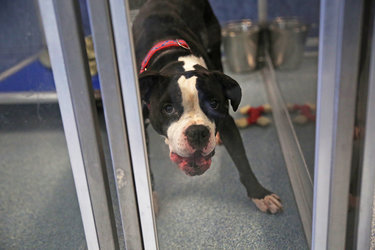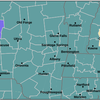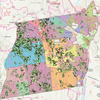Local towns looking for alternatives as Mohawk Hudson Humane Society won’t re-up municipal contracts
ALBANY COUNTY — During a recent town board meeting, New Scotland Highway Superintendent Ken Guyer told the board that the Mohawk Hudson Humane Society will not be renewing its contract with the town, nor will it be renewing a number of municipal contracts it holds with local cities, towns, and villages in Albany, Rensselaer, and Schenectady counties.
Locally, the municipalities that won’t have contracts renewed include New Scotland, Guilderland, Knox, Westerlo, and Bethlehem.
“Reason being is space and manpower,” Guyer said on Nov. 9.
Guyer said there are new kennel laws that will take effect starting Jan. 1, 2023, “which will be more stringent on the humane society.”
The Enterprise reached out to the human society on Nov. 11, Veterans Day, for comment. On Nov. 14, the not-for-profit organization issued a release that said it would only be renewing five of its 21 municipal contracts for next year in part because of such “staggering increases” in stray animal and animal cruelty intakes this year.
In 2022, the humane society, which is located in Menands,is projected to take in 1,198 dogs, an increase of 29 percent over 2021, the release said. “After a careful review of the operations, the Society has made the difficult, yet necessary, decision to not offer renewal of the Animal Shelter Agreement for the 2023 year with several of its municipal partners, a change MHHS says will reduce their dog population by approximately 10%.”
As for the new kennel laws Guyer was referencing, Marguerite Pearson, director of marketing and communications for the humane society, told The Enterprise by email no news state laws are set to take effect in 2023. “The proposed Companion Animal Standards of Care Act, if signed by the Governor, would give all animal shelters and animal rescues three years to comply with changes,” she wrote.
The humane society said it would maintain its contracts with the cities of Albany, Watervliet, Schenectady and Troy, and the town of Colonie, which combined account for 90 percent of the humane society’s stray intakes, and which have seen a 43-percent year-over-year increase, according to the humane society.
“The goal is to continue to help the cities in greatest need and encourage the others with more manageable numbers of strays to find other solutions,” the society said in its release. “Like other animal welfare organizations locally and across the northeast, MHHS is experiencing the trend of increased strays and animal cruelty cases, and runs the risk of operating beyond its capacity for humane care. By decreasing the number of municipal contracts offered, MHHS will ensure proper housing and care for the animals it is able to house.”
The annual number of animals brought to the humane society by the other 16 municipalities whose contracts won’t be renewed ranges from two to 40, according to the society.
New Scotland took one dog to the humane society last year, Guyer told the town board on Nov. 1
In an attempt to return more pets to their owners and cut down on sheltering costs, the humane society also said that it provided microchip scanners to dog-control officers.
The humane society has 86 on-site kennels, which Guyer said were full.
In the short term, when the town has to house a dog, it will be able to take it to the Voorheesville Animal Clinic, a private veterinary practice, to have it checked out, Guyer said.
If the dog is unhealthy, the Voorheesville Animal Clinic will euthanize it, Guyer said, but, if it’s healthy, the town would now be responsible for finding it a home. New Scotland will build arrangements to accommodate a dog long-term.
Councilwoman Bridgit Burke asked Guyer about local fostering agencies.
“So, [that’s] what we started with … When you go on their website, it says on their front page they turned down like a thousand dogs a day … We’re certainly going to call these places anyways, no matter what, and say, ‘Hey, we got this dog, you know, can you help us?’” he answered.
By law, municipalities are required to house dogs for only five to seven days, depending on whether they were wearing a municipal license tag when found; the humane society said it keeps dogs an average of 27 days as 54 percent are not claimed by their owners.
Mohawk Hudson in its release, urges an “evolution of animal sheltering in this area,” stating that strays have always been a municipal responsibility and it is a private shelter so each municipality should work “toward its own sheltering solution” to ultimately increase “the life-saving capacity of the region.”
The release cites the state’s Agriculture and Markets Law on the five ways a municipality can meet its legal requirement: have its own shelter, share a shelter with other municipalities, contract with another municipality, contract with a human society, or lease kennel space.
“We never want to be in a position of having to euthanize for space, as we did many years ago,” said Ashley Jeffrey Bouck, the chief executive officer of Mohawk Hudson, in its release.



